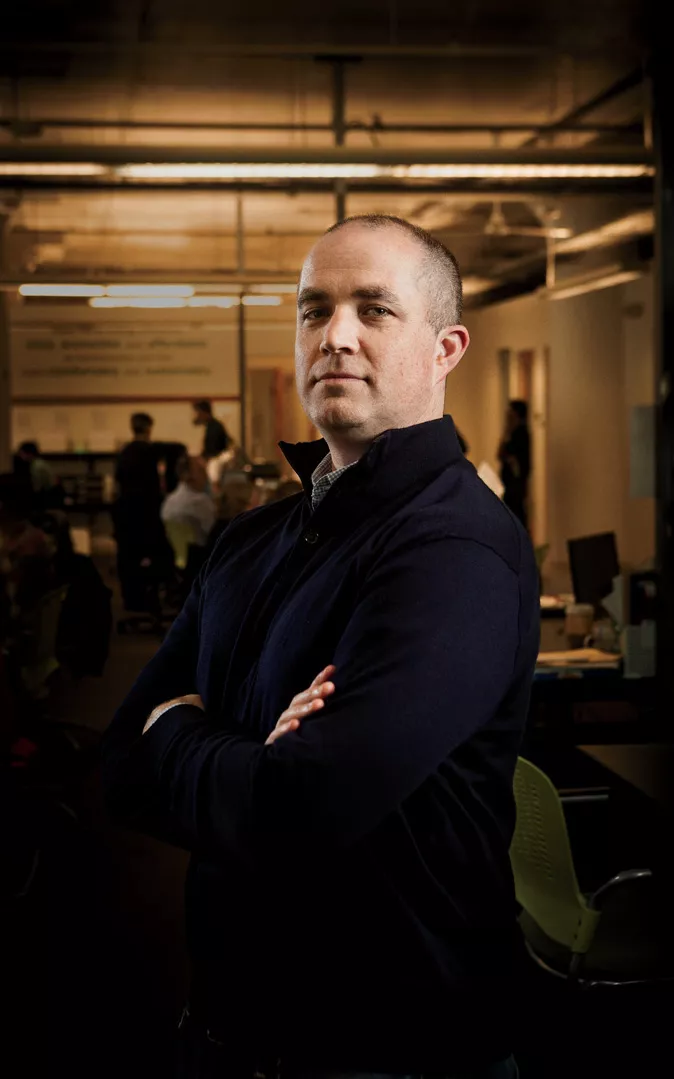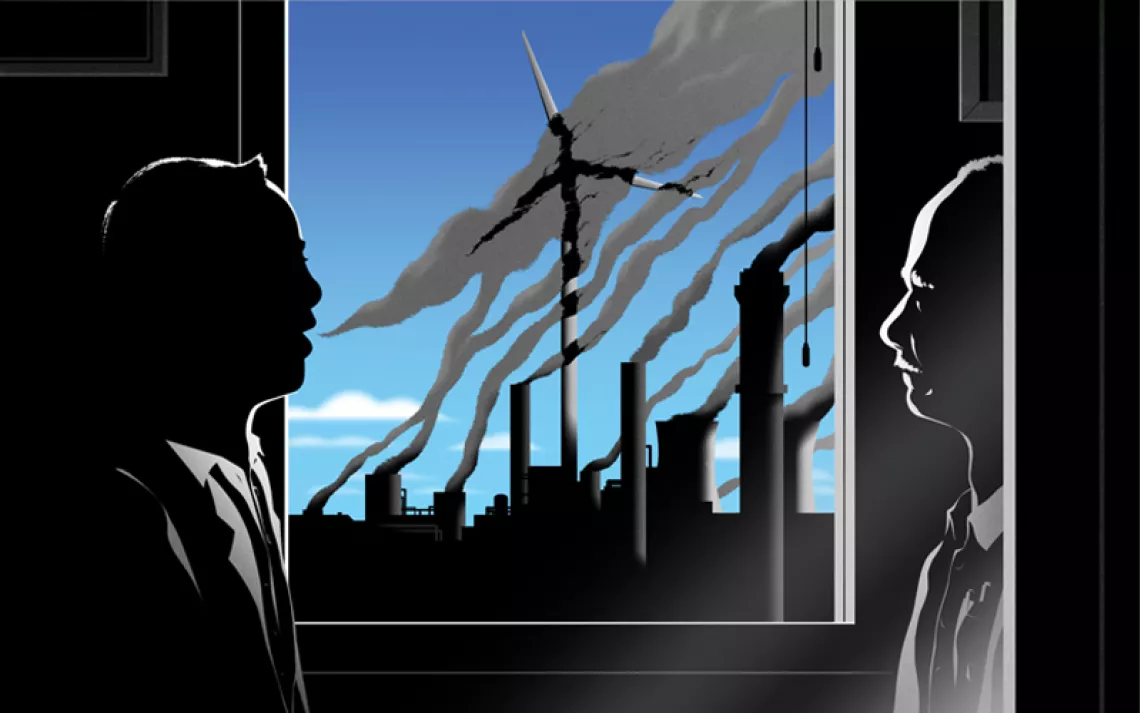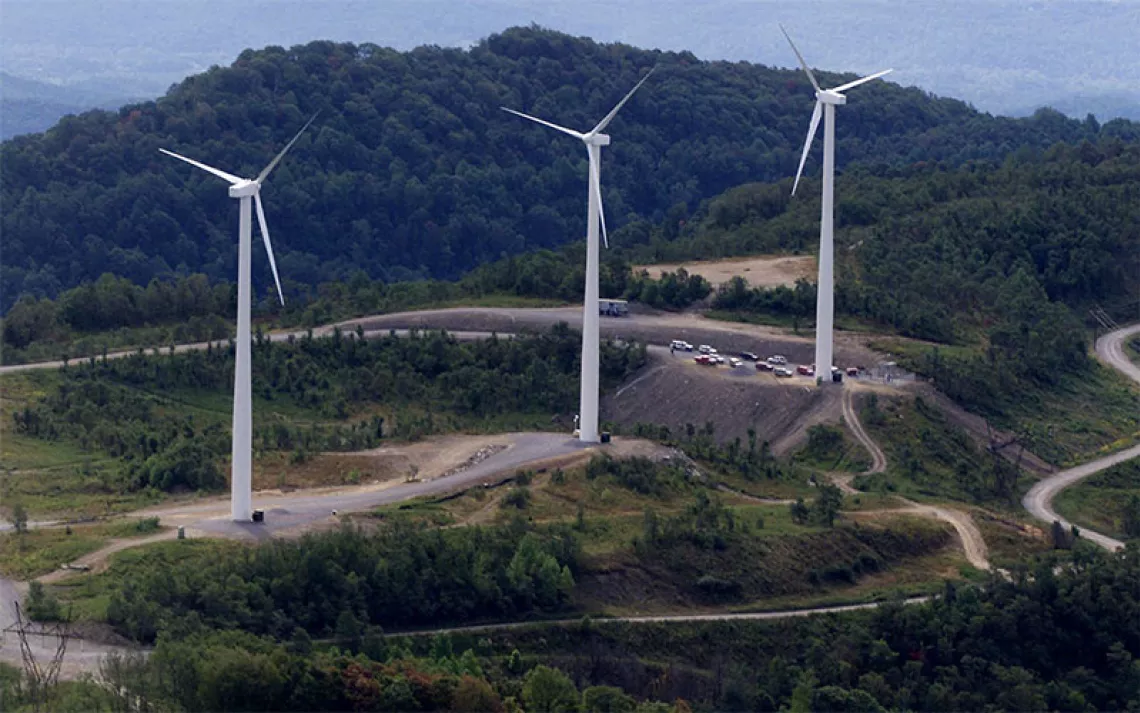Seeding Success
Rob Day is a clean-tech money man

Rob Day, Partner, Black Coral Capital, Boston | Photo by Josh Andrus
Every day, the clean energy revolution is creating new jobs for American workers. As part of an ongoing series, Sierra asked one of them to tell us his story.
Private equity has been hugely important to clean tech. Venture capital helped get Tesla and SolarCity off the ground. A lot of the proliferation of rooftop solar has been driven by project financing. When homeowners get offers to put solar on their roofs for no money down, someone has to pay up front. And that's been private equity investors.
"Private equity" covers everything from venture capital to big buyouts to project finance. We assess hundreds of investment opportunities each year and select two to four. We provide capital and oversight--for years in many cases.
Clean energy's variety creates its own challenges. The sector covers everything from innovative lighting technology to solar panel financing to new ways of building houses. It's a lot different from coming up with the next iPhone app and throwing money at it.
Solar project financing has been great for venture capital because panel prices have fallen so much. I just saw a company that's going to offer rooftop solar for the equivalent of 13 cents per kilowatt-hour, which is basically equal to the cost of utility energy in large parts of the country.
A lot of investment opportunities don't require a swing for the fence. The technologies are ready; we need to change how people buy and sell and use them. We have a company, Digital Lumens, that takes advantage of the fact that the price of LED lighting has dropped precipitously. Its computer-controlled fixtures save 90 percent on lighting bills. That practically makes lighting free. We also backed Clean Energy Collective, a company that builds community-scale solar systems. It goes into a community and builds a solar farm, then sells the panels to homeowners who can't or won't put solar on their rooftops. That has been booming and requires no technological innovation. And we've backed Noesis, which provides financing for large-building owners to do energy efficiency projects. Even if an energy retrofit has a payback of a few years, sometimes the owners don't have the budget to do it. So Noesis arranges the financing and makes sure the project saves money and energy.
We do thesis-driven investing: What's our vision for the world 5 to 10 years out, and what's missing? I'd met a lot of smart innovators with cool widgets for the home, and I always asked them, "How are you going to sell a lot of these?" There was a missing channel--a service provider who could go into homes, figure out what improvements make sense, and lay out a menu of solutions. Then we found Next Step Living, which had 10 guys and two trucks. Now they're up to 800 employees. I love it when that happens.
So much of transportation is still oil-dependent. But cleaner fuels exist; electric drivetrains exist. What are needed are smart entrepreneurs to solve the problems on the ground--going to a trucking fleet, for instance, and helping them save money by making the transition. We need folks who can figure out how to integrate big batteries into the utility grid. Innovators have focused on building bigger, cheaper batteries, but you've got to figure out how they'll fit into the electrical grid, into homes and businesses, in a way that makes financial sense.
I cared about clean energy before I became a venture capitalist. I started my career at an environmental economics think tank, then went to business school because I thought I was going to be a clean energy entrepreneur. I went into consulting, then left 10 years ago to figure out what start-up I was going to join, and stumbled into venture capital. I blog to broadcast the message that this stuff works, that it makes economic sense, that there should be more of it.
It's obvious that there's going to be massive market transformation and huge business opportunities. I like working with entrepreneurs who are trying to change the world. You see their passion. What I don't like is having to face people who are skeptical about what we do even while we are succeeding.
 The Magazine of The Sierra Club
The Magazine of The Sierra Club







